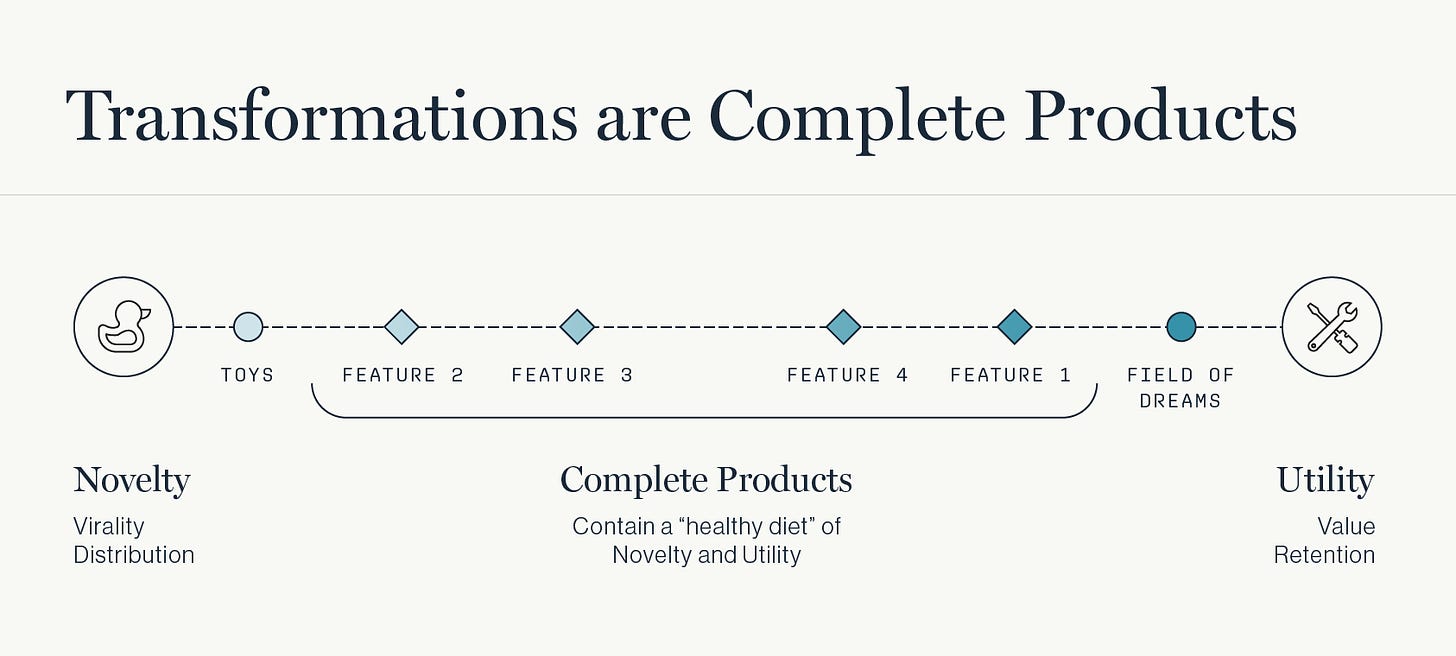Fortifying Your Defenses: Building a Robust AI Moat
What is the Framework for Building a Resilient AI Product?
In business, I look for economic castles protected by unbreachable ‘moats’
– WARREN BUFFET
Building a successful and resilient business requires strong defensive strategies, often referred to as "moats." This concept is especially crucial today as we navigate significant platform shifts, including the migration of applications to the cloud, their consumption on devices like iPhones and Teslas, the reliance on open-source technologies, and the increasing role of AI and data. These shifts are rendering some traditional moats obsolete, making it challenging for CEOs to establish defensible businesses.
Here, I present a framework for building an AI Moat for product.
#1 Data, Algorithms, and Infrastructure
Data, algorithms, and infrastructure are the three pillars for building robust AI-first businesses. These principles, when effectively implemented, enable founders to harness the full potential of AI and create resilient, differentiated ventures.
Data:
Data is the new currency, offering a unique opportunity for startups to gain a competitive edge.
The ability to extract, audit, label, and update data from legacy systems is a competitive advantage.
Continuous generation and refinement of data through product usage ensure accuracy and a strong foundation for AI models.
Algorithms:

As Sam Lessin described, the evolution of networks progresses from pre-AI to AI-powered, and eventually to AI-only.
AI disrupts industries like social media, dating apps, and marketplaces.
Founders can create a strong AI moat by prioritizing AI-first marketplaces, collecting granular data, and enhancing supply and demand sides with advanced algorithms.
Infrastructure:
Robust technical infrastructure, including scalable systems and substantial computing power, is essential for efficiently managing AI workloads.
This creates a performance gap that enhances the user experience and sets the business apart in the dynamic and competitive AI landscape.
#2 Domain Expertise and Network Effects
Combining domain expertise with AI capabilities and leveraging network effects in AI-driven platforms are powerful strategies for building successful AI-first businesses. These approaches create competitive advantages, enhance user experiences, and drive sustainable growth.
Domain Expertise with AI:
Deep industry knowledge and understanding specific use cases within your target domain are crucial.
Applying AI to address industry-specific challenges and integrating it into existing workflows create tailored solutions that are hard for competitors to replicate.
Founders can develop AI solutions that improve efficiency, reduce costs, and enhance performance, resulting in a strong competitive moat.
Network Effects:
Building network effects into your AI product, through marketplaces, communities, or collaborative platforms, increases its value as the user base grows. This network effect enhances the stickiness and appeal of your product.
Network effects occur when a product's value increases with more users, creating a virtuous cycle.
AI-driven platforms leverage data and user interactions to improve AI models, attracting even more users.
TikTok's AI Moat:

TikTok has built a strong AI moat by optimizing for user retention and engagement.
Their algorithm uses machine learning to predict user behavior and serve engaging content, creating a feedback loop that improves the user experience.
#3 Customer-Centric Advantages:
Validating ideas, focusing on customer obsession, and differentiating between toys and transformative products are crucial for building successful AI-first businesses. Founders should prioritize enduring usefulness, exceptional user experiences, and sustainable advantages to stand out in the market.
Don’t Invent New Problems:
Validate and test ideas: Avoid falling for viral metrics. Ensure your product solves a real problem and has enduring usefulness, not just a novelty factor.
Differentiate between toys and transformative products: Toys are cool but lack long-term value, while transformative products provide durable utility and solve existing problems in new ways.
Customer Obsession:
Listen to your customers: Prioritize customer feedback and obsession over technical feats. Startups can win against well-capitalized foundation model providers by focusing on customer needs and creating sustainable advantages.
Focus on delivering an exceptional user experience by making AI seamless, intuitive, and valuable for your users.
Address performance issues: Take customer complaints seriously and address them promptly.
Be Cautious of Toys:
Understand the difference between viral hits and long-term success: Some products may start as toys, but their long-term success depends on graduating users to durable value and providing better solutions to existing problems.
Recognize the limitations of technical advantage: In AI, technical advantages may be short-lived as knowledge spreads quickly. Focus on using any technical advantage as a head start to create sustainable advantages rooted in customer obsession.
Foundation Model Providers:
OpenAI's focus on AGI: While foundation model providers like OpenAI make incredible breakthroughs, their progress may not always align with customer needs. In the example given, OpenAI's Sora model may not be the tool of choice for filmmakers due to its focus on AGI rather than customer-specific workflow and feature needs.
Conclusion
The path to building resilient and profitable AI-powered businesses requires a thoughtful strategy. By treating data as the new oil and investing in advanced AI algorithms, founders can create a competitive edge. Robust technical infrastructure that can efficiently process AI workloads is equally vital. Additionally, deep domain expertise enables the creation of industry-specific AI solutions, while network effects increase the value proposition of the product. Prioritizing customer feedback and creating solutions that address their pain points are essential for sustainable success.
Reference:
Hey there!
I'm Kevin Wang, a product manager by day and a passionate builder of tulsk.io, a Gen-AI Tool, in my free time. I'm on a mission to simplify complex concepts in web3 and AI, so they're easier to grasp and apply to your own learning and growth.
Keen to dive deeper?
Join the tulsk.io community and support my mission to share insights with budding entrepreneurs like you. Your support means the world to me and ensures I can continue to inspire innovation and knowledge.
🌟 Spread the Curiosity! 🌟
Share it to inspire innovation and knowledge!




